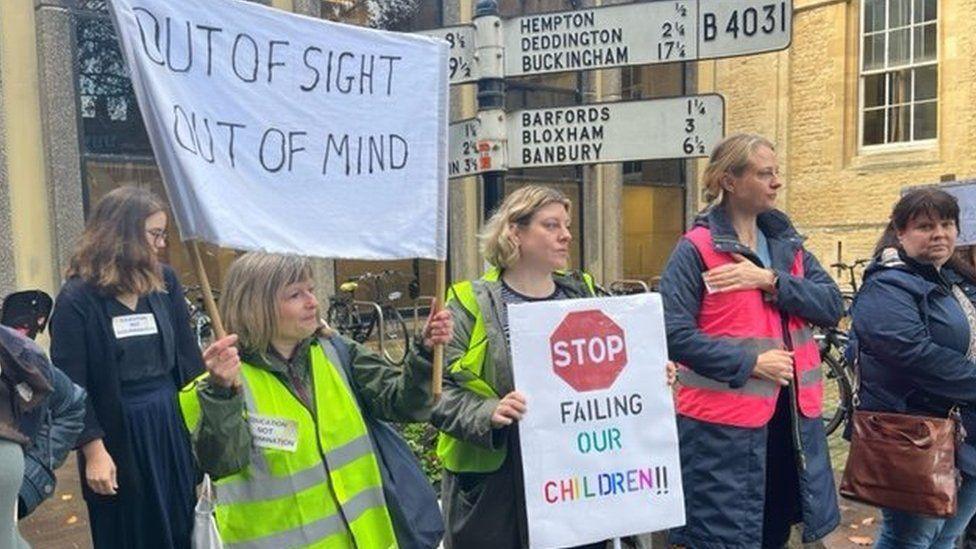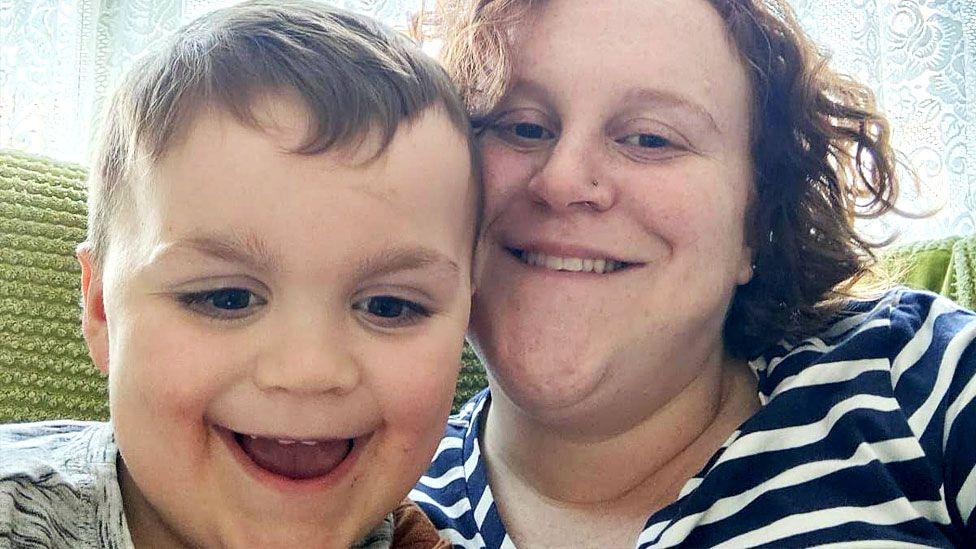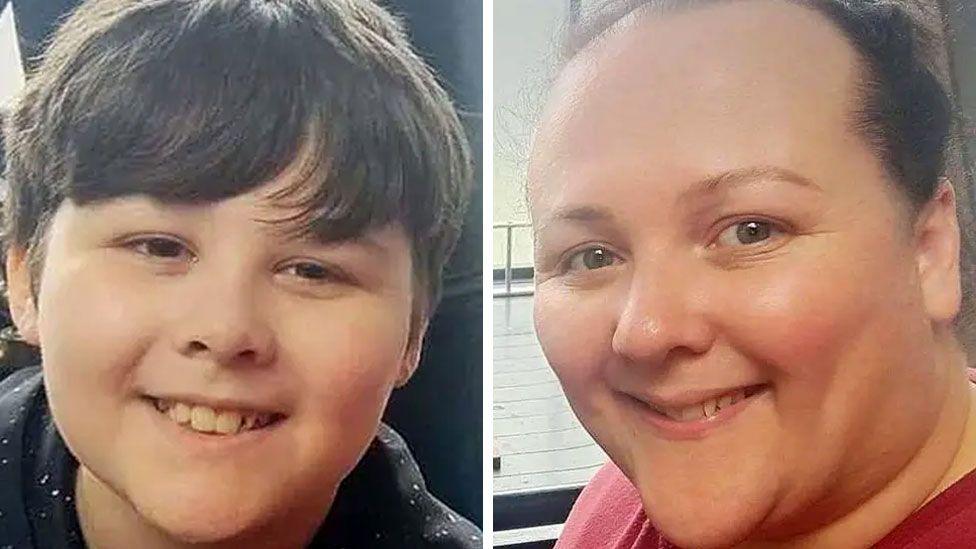'My daughter is part of the failed generation'

Tracey withdrew her daughter Lilimae from mainstream schooling
- Published
An autistic teenager is part of a "failed generation" of children with special educational needs, her mother has said.
Tracey, from Abingdon, Oxfordshire, resorted to teaching her 15-year-old daughter Lilimae at home, after deciding that mainstream schooling was unsuitable.
She said she was also "pushed from pillar to post" by local authorities when she tried to organise alternative support.
The special educational needs and disabilities (SEND) system is "failing countless children", according to a report published earlier by the Public Accounts Committee of MPs.
The committee said many parents faced delays in obtaining an education, health and care (EHC) plan from councils, which would entitle their children to specialist support.
Tracey said: "If I attempt to get an EHC plan now it's going to come too late for her.
"I've already had to remove her from mainstream school because mainstream school is not the environment for a child with her needs.
"My child is one of those failed generations.
"I think the government are essentially responsible for that and there needs to be more input from the top."

Anna said her grandson Malakai had not been in any sort of school since May 2022
Anna cares for her 11-year-old grandson Malakai who has autism and ADHD (attention deficit hyperactivity disorder).
He was in a mainstream primary school until December 2021, when the school decided it could not meet his needs.
"He was being disruptive and causing problems in the classroom because it is very difficult to regulate his emotions and he was getting more and more anxious," Anna said.
The grandmother, from Appleton, Oxfordshire, secured an alternative school for just three hours a day.
However, she added: "After 12 weeks he was just dropped. I had a phone call saying we can't meet [his] needs… That was his last day in any kind of school."
"Now the responsibility is totally on my shoulders to organise his alternative provisions, sort out tutors, sort out his timetable."

Parents in Oxfordshire protested in 2022 over the quality of SEND services
In the Oxfordshire County Council area, 4.8% of children had an EHC plan last year.
Just over half of EHC plans were issued within the target 20-week period, and just over 5% of plans were taken to tribunal.
Councillor John Howson, in charge of children's services, said: "SEND has been a policy failure of government as the National Audit Office report before Christmas demonstrated.
"Oxfordshire has taken on board the improvements needed and has already opened a new special school with more in the pipeline.
"We need the NHS to continue to support Oxfordshire in its efforts to provide support for our young people."
The Department for Education (DfE) said the government was "making progress" on the issue, with a £1bn investment in SEND.
Schools Minister Catherine McKinnell said: "The system we've inherited has been failing families with SEND children for far too long – this is unacceptable and that's why we set out our Plan for Change to ensure no child is left behind.
"These problems are deep-rooted and will take time to fix but we remain steadfast in our commitment to deliver the change that exhausted families are crying out for by ensuring better earlier intervention and inclusion."
Get in touch
Do you have a story BBC Oxfordshire should cover?
You can follow BBC Oxfordshire on Facebook, external, X (Twitter), external, or Instagram, external.
- Published15 January

- Published24 October 2024

- Published20 September 2024
